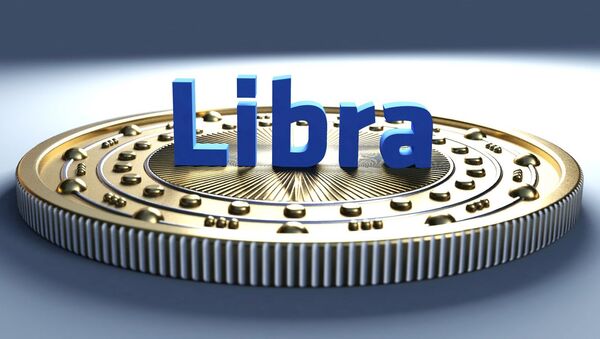The Libra cryptocurrency proposed by Facebook threatens the "monetary sovereignty" of governments and should not be allowed to be developed in Europe, according to French Economy Minister Bruno Le Maire.
"All these concerns about Libra are serious. I therefore want to say with plenty of clarity: in these conditions we cannot authorise the development of Libra on European soil", Le Maire said at the opening of an OECD conference on virtual, cryptocurrencies.
Le Maire also cited the potential for abuse of market dominance as well as systemic financial risks as the reason why the cryptocurrency cannot operate in Europe.
Facebook announced its intentions to launch the digital coin in June. The new cryptocurrency is designed to assist billions of its social media users in conducting international transactions. The digital coin will be operated by Facebook along with 28 partners, including Visa, MasterCard, PayPal, Uber, Lyft, and Spotify.
The development of the Libra has raised grave concerns among lawmakers over how it will be regulated.
Earlier this month, a member of the board of the European Central Bank (ECB) cautioned that the Libra virtual currency could under certain circumstances negatively affect the bank's ability to regulate the euro and the single market.
The company's initiative has also been met with criticism in the US, with the Congressional House Financial Services Committee reportedly drafting a bill called the "Keep Big Tech Out Of Finance Act" to prevent technological giants from becoming financial service brokers.
Libra is "Just Hype"
However, not everyone would agree with Le Maire regarding the threat to "monetary sovereignty" that the Libra purportedly poses. Kevin Dowd, a British professor of finance and economics, believes that the cryptocurrency in question does not pose much of a threat to governments' monetary sovereignty, but in principle, unregulated cryptocurrencies do. According to Professor Dowd, the threat would be that people could carry out transactions that the government couldn't control, and that people would switch away from government-controlled money.
The professor believes that Libra itself is just hype and another unicorn in the digital/crypto-money expanse.
The scholar also downplayed Libra's exceptional nature saying that any big firm could launch a new currency tomorrow, which begs the question of what is so special about Libra. Dowd believes that real freedom comes from a new money that cannot be controlled by the government, but it is unclear how Libra can offer that.
"The differences are more apparent than real. Yes, Libra is a new money, but so what? Any big firm could launch a new currency tomorrow, so what is special about Libra? Mr Marcus can say all he likes about it giving people more monetary freedom, but that is just hype. Real freedom comes from a new money that couldn't be controlled by the government, and how can Libra offer that? Well, it can't. On the other hand, if Ed Snowden in Moscow were to launch a new currency, that would be interesting", Dowd said.
In Dowd's opinion, EU countries are not going to block the cryptocoin, but they will insist on controlling it.
In the meantime, Charles R. Smith from CEO Software Inc. believes that technically most flaws in digital currencies occur in the basic banking back-end system and allow hackers to successfully attack a user’s account. According to Smith, the question then becomes whether Facebook is reliable enough to construct a well-protected end-user product for IoS and Android.
"The fact is they are not a security driven company, both in terms of technical designs and in that their business model which is based on abuse of user private information. I suspect that various design features placed in Libra, enabled to "monetise" for Facebook to profit, will provide avenues for attack at both the end-user level and inside the banking back end. Thus, I would not use Libra”, Smith said.
Views and opinions, expressed in the article do not necessarily reflect those of Sputnik.

